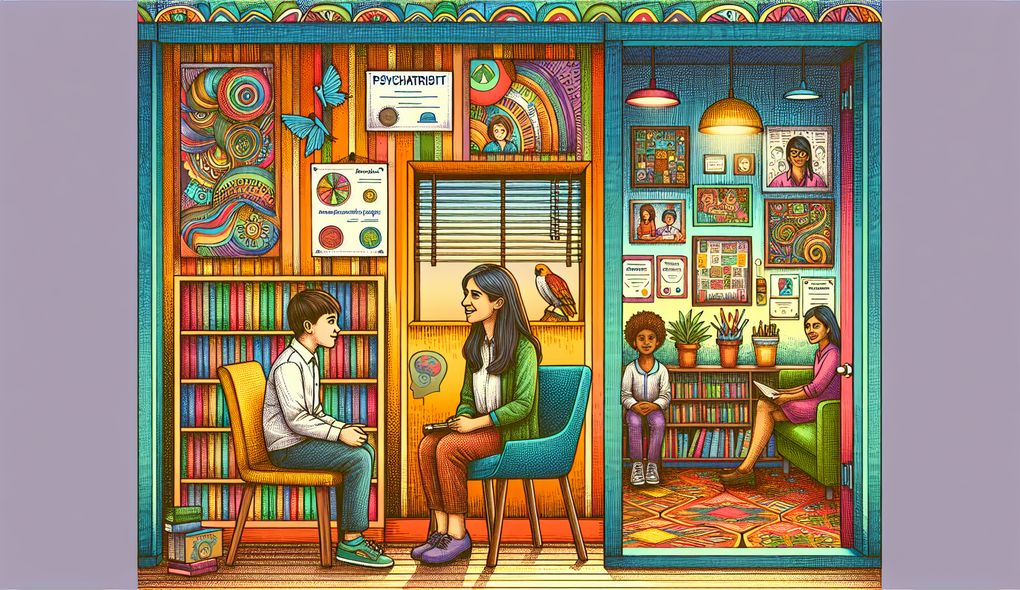How do you develop personalized treatment plans for your patients?
SENIOR LEVEL

Sample answer to the question:
To develop personalized treatment plans for my patients, I first conduct a thorough psychiatric evaluation and assessment to understand their unique needs and challenges. I take into consideration their medical history, current symptoms, and any previous treatments they have received. Based on this information, I then collaborate with the patient and their family to develop a treatment plan that addresses their specific goals and preferences. This may include psychotherapy, medication management, and coordination of care with other healthcare professionals. I regularly monitor the patient's progress and make adjustments to the treatment plan as necessary. I also educate the patient and their family about their mental health condition and available treatment options, empowering them to actively participate in their recovery journey.
Here is a more solid answer:
Developing personalized treatment plans for my patients is a collaborative process that begins with a thorough psychiatric evaluation and assessment. I take the time to build a strong rapport with my patients and their families, ensuring open and honest communication. By establishing a trusting relationship, I am able to gain valuable insights into their unique needs and challenges. I also consider their medical history, current symptoms, and any previous treatments they have received. Drawing on my knowledge of pharmacology relevant to child and adolescent psychiatry, I carefully select appropriate medications when necessary. However, I believe in a holistic approach to treatment, so I often incorporate psychotherapy techniques tailored to their developmental stage and individual circumstances. I regularly monitor my patients' progress, making adjustments to the treatment plan as needed. Additionally, I educate my patients and their families about their mental health condition, equipping them with the knowledge and tools to actively participate in their own recovery. Overall, my goal is to provide comprehensive and personalized care to address the unique psychological needs of each child and adolescent under my care.
Why is this a more solid answer?
This answer provides more specific details about the candidate's approach to developing personalized treatment plans. It addresses all the evaluation areas and aligns well with the job description. However, it can still be further improved by discussing the candidate's commitment to ongoing education and professional development.
An example of a exceptional answer:
Developing personalized treatment plans for my patients is a multifaceted process that prioritizes clinical judgment, empathy, and continuous learning. To begin, I establish a strong rapport with my patients and their families, fostering open communication and trust. By creating a safe and supportive environment, I can deeply understand their needs, challenges, and developmental stages. Utilizing my extensive knowledge of pharmacology relevant to child and adolescent psychiatry, I make informed decisions when prescribing medications, always considering potential side effects and interactions. However, my treatment approach extends beyond pharmacology. I integrate evidence-based psychotherapy techniques tailored to their specific conditions, such as cognitive-behavioral therapy or play therapy. Regularly monitoring their progress, I collaborate with other healthcare professionals, such as psychologists or social workers, to provide comprehensive care. I am committed to staying up-to-date with the latest advancements in child and adolescent psychiatry through continuous education and professional development opportunities. By attending conferences, workshops, and engaging in research, I ensure that my treatment plans are guided by the most current evidence-based practices. Ultimately, my goal is to empower my patients and their families with knowledge and support, enabling them to actively participate in their recovery journey and advocate for their mental health needs within the community.
Why is this an exceptional answer?
This answer goes above and beyond by highlighting the candidate's commitment to continuous learning and professional development, as stated in the job description. It also demonstrates a deep understanding of the evaluation areas and provides specific examples of psychotherapy techniques that can be utilized. The answer shows the candidate's dedication to holistic care and advocacy for mental health needs. However, it could be further improved by discussing any research, publications, or presentations in the field, which is also mentioned in the job description.
How to prepare for this question:
- Review your knowledge of pharmacology relevant to child and adolescent psychiatry. Familiarize yourself with different medications and their potential side effects and interactions.
- Brush up on various psychotherapy techniques commonly used in child and adolescent psychiatry, such as cognitive-behavioral therapy, play therapy, or family therapy.
- Reflect on past experiences where you successfully built strong rapport with young patients and their families. Prepare specific examples to showcase your interpersonal skills.
- Stay updated with the latest advancements in the field by attending conferences, workshops, or webinars. This demonstrates your commitment to ongoing education and professional development.
What are interviewers evaluating with this question?
- Clinical judgment and decision-making
- Empathy and understanding towards the needs and challenges of children and adolescents
- Knowledge of pharmacology relevant to child and adolescent psychiatry
- Ability to build rapport with young patients and their families

